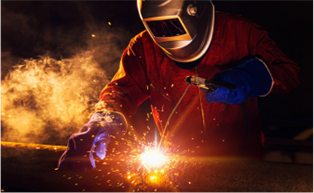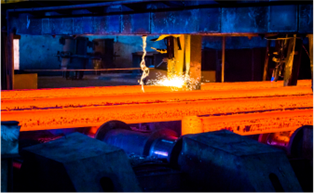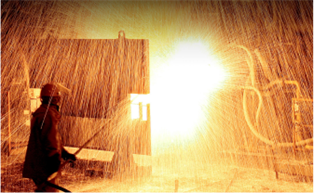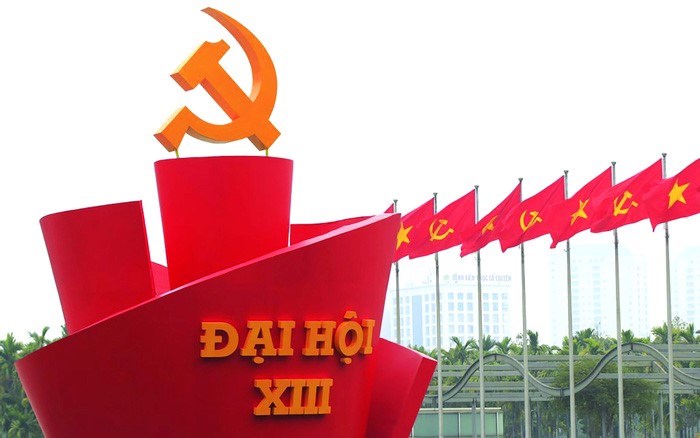Democratic practice associated with strengthening Party discipline
The practice of democracy means to do it in a masterful, regular way, becoming the regime, the background in the party's activities and activities - democracy will aim for a unified focus, towards the goals and ideals of the Party identified.
13/08/2021 13:46
The practice of democracy means to do it in a masterful, regular way, becoming the regime, the background in the party's activities and activities - democracy will aim for a unified focus, towards the goals and ideals of the Party identified.
DEMOCRACY MUST BE TIED TO DISCIPLINE
Democracy is essentially power belonging to the people- the people are the people, the people are the mastery. President Ho Chi Minh affirmed that "Our country is a democratic country, the highest status is the people, because democracy is democracy"(1).
Continuing the cultural values of democracy, the XIII Congress of the Party in point out that "Democratic practice in the Party is associated with strengthening discipline and discipline of the Party"(2). From the essence, democracy is a cultural value, the motivation of development, the life energy of the Party. The practice of democracy in the Party is essentially a return to Ho Chi Minh's ideology: "The practice of democracy is the universal key that can solve all difficulties."
The profound nature of democratic practice will contribute to promoting the creative potential of commissioners and party members, creating consolidation of political power, discipline, creating consensus, leadership capacity and fighting power of the Party.
The practice of democracy means to do it in a masterful, regular way, becoming a regime, the background in the activities and activities of the Party - democracy will aim for a unified focus, towards the goals and ideals of the Party identified. It is the inevitable logic that leads to the consequence "When people have made speeches they have found the truth at that time the freedom of thought turned out to be the freedom to submit to the truth"(3).
The wider the democracy, the more proper and healthy the focus. Democracy is realized in practice, ensuring the rights of party members when there is direction and direction of focus. Ho Chi Minh concluded: "Discipline in democracy and democracy must be disciplined." He said: "Within the Party, all party members have the right to raise their opinions, make proposals and participate in solving problems. But the decision must not be contrary to the central leadership of the Party, contrary to resolutions and un disciplined. Anti-decision: do not consider the time, place, conditions that are wobbly, freedom of action, democracy too much"(4). He also noted the phenomenon of arbitrary democracy, excessive disregard for discipline in some officials and party members: "In the Party, it is not possible to implement a centrally democratic regime, not follow the principle of collective leadership. Ignoring the discipline and policies of the Party and the Government. Contempt for subordinate opinions. Review the superiors directive. Don't want to check. Don't want to hear criticism"(5).
Documentary Photos
Our party is becoming more and more aware of the role and method of promoting democracy - the practice of democracy in the Party. The practice of democracy in the Party is shown in the following contents and aspects:DEMOCRATIC PRACTICE IN THE PARTY
Firstly, from the important role of the political line to the revolutionary process, our Party has implemented democracy, absorbed the wisdom of the entire Party, the entire people, including overseas expatriates to build the discipline, guidelines and guidelines. Therefore, the documents of the Party Congress, especially the documents of the 11th, 12th and 12th Congress, are truly the intellectual integration works of the entire people; reflecting quite fully, comprehensively, identifying the vision and pressing issues from the real life and aspirations of the people to build the country, create directions and objectives of the path of building socialism of our country's revolution.
Secondly, the practice of democracy in the work of cadres, the selection of personnel for election to the committee level, the Central Committee is elaborately prepared, thoroughly, in accordance with principles, processes, promoting democracy to select the right elite officials, with a high mind and aspiration to build the country. In the work of cadres, especially in the appointment stage, the majority of committees have practiced democracy, well implemented the principle of democratic centrality in exchange, discussion, consideration, selection decisions ... From the last X Congress term, the Party has piloted the congress to elect party secretals from the base level to the provincial level, many comrades achieved a high percentage of votes. It also promotes democracy and the rights of delegates in the congress.
Thirdly, promoting democracy - the practice of democracy in party activities, from the activities of the Central Committee, the Politburo, the Secretariat to the activities of the sub-ministries have made positive innovations and changes in order to promote the intellectuals and creative ideas of members and party members in the process of building the Party, making political decisions. The step towards democratic practice at the XII Congress is tofinalize the mechanism and regulations on questioning during the meetings of the Central Committee, committees and standing committees at all levels(6) to share and understand the issues between the subject of questioning and the subject of questioning. This practice both practices democracy to ensure the rights of party members and commissioners, and helps committees, standing committees and heads to have more information, suggest creative ideas, implement leadership decisions in accordance with reality and people's favor.
Fourth, the practice of 1989 - 1991 shows that the Communist Party of the Soviet Union and the Communist Parties of Eastern Europe lost their leadership roles due to mistakes such as abandoning the Marxist-Leninist ideology, abandoning the principle of democratic centralism, mistakes in principles, reform lines, mistakes in cadre work ... In this context, the 6th Central Resolution VI introduced one of the five principles "democracy must go hand in hand with focus, with discipline, law, with a sense of citizen responsibility. Democracy must have leadership and leadership to promote democracy in the right direction; on the other hand, it is necessary to lead by democratic methods on the basis of promoting democracy"(7).
Along with the practice of democracy, our Party has strengthened discipline and discipline to strengthen the will and act, maintaining the leadership role and ruling capacity. In the work of cadres, the Party has promulgated regulations and regulations to well implement the management, promotion, appointment, strict control of cadre power, anti-running, running rights, tightening discipline, discipline ... as prescribed No. 85-QD/TW of May 23, 2017 of the Ministry of Politics on "Inspection and supervision of property declaration of officials under the Management of the Ministry of Politics and the Secretariat"; The Government's Regulation No. 179-QD/TW of February 25, 2019, on "Regime of inspection and supervision of cadres" ; The Political Ministry's Regulation No. 102-QD/TW of November 15, 2017, on "Disciplining party members for violations"; Regulation No. 205-QD/TW of September 23, 2019 of the Ministry of Politics on "Control of power in cadres and anti-running of power"...
However, in addition to the results achieved, the practice of democracy in the Party still has the phenomenon of "both lack of democracy", "lack of concentration"; promoting democracy in the form and expression of maturity, authoritarianism and authoritarianism in some heads. That phenomenon has limited the development of democracy, is "legalized" by decisions of will, "group interests", and is not suitable for the people. There are still some committees, party organizations, heads of democratic implementation are still formal, expressing a lot of discussion, time-consuming, but lacking the focus, lacking the evocative orientation of the head. The presence of these two tendencies needs to focus on remediation in the near future. Many party organizations "also take the practice of democracy lightly"(8). From the practice of the term, the XII Congress evaluated "Notreally promoting democracy in the Party"(9).
Documentary Photos
DEMOCRATIC PRACTICE IN THE PARTY ASSOCIATED WITH INCREASED DISCIPLINE AND DISCIPLINE
In order to practice democracy in the Party associated with strengthening discipline, discipline needs to implement the following basic solutions:
Firstly, raise the sense of responsibility of the parties, first of all, the commissioners, the heads, the party members.
It should be recognized that the practice of democracy associated with strengthening discipline and discipline is aimed at building a strong clean Party in all 5 areas: politics, ideology, ethics, organization and cadres. The contingent of cadres and party members raised the party's character, maintained political qualities, revolutionary ethics, exemplary speaking in hand with doing, consciously organized discipline, devoted to serving the people.
Democratic practice is associated with discipline, discipline is essentially two sides of a problem, the impact of mutually justification. There is no pure democracy that democracy has always associated with focus, discipline, discipline, awareness of the inevitable must do. C. Mark has drawn freedom is the perception of inevitable. To comply with discipline and discipline on the basis of self-awareness, to be aware of the inevitableness to graft themselves in the organization, to voluntarily comply with the party's lines, guidelines, resolutions and directives and laws of the State. Democracy is too arbitrary, arbitrary freedom is contrary to the democratic nature of the Party; contrary to the party's principle of democratic centrality.
Not only the awareness but also the responsibilities of the party committees and organizations must thoroughly and closely follow the regulations and regulations to implement how to promote democracy and associated with discipline and discipline. It is necessary to raise the level of democratic culture, democracy must have leaders and leaders to promote democracy in the right direction associated with discipline and discipline. Must lead by democratic method to promote the positiveness of commissioners and party members.
Secondly, develop regulations and regulations to implement in order to promote democracy and strengthen discipline and discipline.
Regulations and regulations are essentially the specific party's charter, guidelines and resolutions of the Party into provisions and sanctions for party organizations and party members to comply with. The XIII Congress specified "democratic practice associated with strengthening party discipline and discipline"(10). On the basis of general regulations and regulations of the Party, party organizations need to closely follow the operational regulations of the Party to formulate, quantize regulations and regulations in accordance with the practices of their Party so that they are easy to remember and easily implement. Without the compulsory regulations attached, the promoting democracy and strengthening discipline and discipline in the Party will be difficult and embarrassingly mobile in the implementation organization. Strictly implementing regulations and regulations is essentially promoting democracy associated with discipline and discipline of members and party members.
In the coming time, the Central Committee of the Political Ministry needs to study and promulgate regulations and regulations such as implementing the principle of democratic centrality in the development of resolutions, in party activities and in cadre work; regulations on protection of cadres who dare to innovate and dare to break through; regulations on protection of critics; regulations governing party members using cyberspace ... to manage and promote democracy and to be associated with discipline and discipline.
Thirdly, promote the democracy of the committee with the head.
This is the relationship of the party organization. Uncle Ho demanded that "democracy be truly expanded for all party members to express their opinions." Failure to implement democratic rights within the Party would make the "internality of the Party sound." At the same time, this relationship is also a manifestation of the principle of democratic centrality, the collective of individual leaders in charge. The leadership collective is an institutions in the activities and activities of our Party to promote democracy to make accurate decisions in accordance with reality and people's favor. Because according to Ho Chi Minh "Leaders are not collective, they will go to the bad, authoritarian, subjective. As a result, the job failed. The individual leaders in charge should always go hand in hand." The individual in charge is the manifestation of concentration, the power of the entrusting organization to the individual responsible to the organization for his/her activities.
In formulating the leadership resolution, Ho Chi Minh instructed the method of reasoning: "When it is not decided, it is spoilt for discussion. But when the decision is made, it must not be discussed anymore, there is controversy just by enforcing it quickly, not to ask not to do it"(11). Democratic discussion, which fully promotes the rights of the commissioner but must be associated with the focus - the evocative orientation of the head. The head of the vision, grasping the reality, visualize the scripts, the suggestion of the head is also very important. This requirement is not only in the conference to issue resolutions but also in the work of cadres, especially the promotion and appointment of cadres. The party committees and the heads are the two parties that always have the interaction and governing the activities of the Party Committee and the Party Committee. This basic relationship should be operated on the principle of democratic centrality in order to both promote the democracy of the committee and promote the role of the head. It is necessary to prevent at the head of the manifestation of the family, impose not to listen to the opinions of the commissioners and party members.
All issues discussed by the committee and standing committee are the basis for the head / secretary of the committee to lead, direct effectively and closely with the practice. It is a solid base for the party secretary to perform well as a political leader for the party. On the contrary, the head has outstanding capacity, fores, grasp of reality, understand the aspirations of cadres, party members and the masses, the orientation and suggestion of the head is very important. But it should be avoided in that when the head of the family expression and individualism come up with ideas that do not come from the common, the committees and standing committees must have their opinions, exchanges and expressions of arguments and witness characteristics. Struggle convincingly with truth and reason for the head to share, recognize his shortcomings. In recent years, the Party has emphasized the role of the head - individualization in charge to improve responsibility, dare to take responsibility for organizing the effective implementation of political tasks.
Fourthly, strictly implement the principle of self-criticism and criticism.
Self-criticism and criticism are one of the five principles of organization and operation of our Party. At the same time, it is a dominant attribute that promotes democracy in the Party. Uncle Ho once emphasized "the practice of democracy widely, regularly and seriously self-criticizing and criticizing". This is a way to promote democracy, crystallity of creative ideas to raise the wisdom of the Party, build unity, foster comrade love to help each other. According to Ho Chi Minh "The purpose of criticism is to help each other repair and help each other progress"; "In the Party the practice of democracy widely, regularly and strictly self-criticizing and criticizingis the best way to strengthen and develop the unity and unity of the Party"(12). The consequences of letting go of the weapon of criticism will lead to "as well as having a disease that hides the disease. Don't dare take your medicine. To get to the worse of the disease, do not die "also scream melons"(13).
Party committees, party organizations and party members must master the meaning, principles, contents and methods of criticism. When criticism must be fair, objective, radical, unsolithing, it must be said both advantages and disadvantages, criticism of jobs, not criticism of people. Focusing on building a culture of criticism shows a clear motive, sincerely wishing his comrades to correct defects for adult progress.
Ho Chi Minh instructed: "If you want to fix it well, you must be willing to listen to the public's criticism and honestly criticize. Not listening to criticism and not self-criticism is certainly backward, regressive." He also taught: "To want good democracy, high discipline, officials must be exemplary of criticism and self-criticism." The head of "dare to speak", daring to self-criticize and criticize not only promotes the implementation of political tasks, internal solidarity, but also has the power to spread to members of the ministries, parties and the masses.
The yearis , strengthening inspection and supervision urging the effective implementation.
Inspection and supervision is one of the leadership functions of the Party. Ho Chi Minh concluded that nine-tenths of the defects were due to a lack of inspection. The role of inspection and supervision of the upper party organization for subordinates is extremely important. Performing this task will help the party organization and the heads of superiors understand the operation of the subordinate party organization, praise the advantages and results of democratic practice, tighten discipline and discipline in the Party organization; at the same time, accurately identify the conflicts that are sedimentary such as expressions of dis solidarity, rafts, family, authoritarian in the head to correct and criticize the repair.
The effectiveness and effectiveness of the inspection and supervision of superiors for subordinates is quite clear. It is the essence of the principle of democratic centrality - the minority submissive to the majority, subordinates submissive to superiors forcing the subordinate party organization to comply.
In addition to implementing the regime of regular, regular and abnormal inspections, the committees should direct the party committees according to their duties and tasks to strengthen the inspection and urge the subordinate party organization to perform the tasks, including the task of democratic practice associated with discipline and discipline.
__________________________
(1) Ho Chi Minh: FullEpisode, Nxb. National Politics Facts, H, 2011, t.13, p.83.
(2) Communist Party of Vietnam: Documents of the 13thNational Congress of Delegates, Nxb. National PoliticsFacts, H, 2021 t.1, p.181.
(3) Ho Chi Minh: FullEpisode, Sdd, H, 2000, t.8, p.216.
(4) Ho Chi Minh: FullEpisode, Sd, H, 2000, t.7, p.241.
(5) Ho Chi Minh: FullEpisode, Sd, H, 2011, t.8, p.507.
(6) (9) Communist Party of Vietnam: Documents of the 12thNational Congress of Deputies, Nxb. National PoliticsFacts, H, 2016, p.200, 198.
(7) Communist Party of Vietnam: Documents of the Partyin full, Nxb. National Politics, H, 2006, t.49, p.392.
(8) The report sums up a number of reasoning and practical issues over 30 years of innovation (1986-2016). Nxb. National Politics Truth, H, 2015, p.144.
(10) Communist Party of Vietnam: Documents of the 13thNationalCongress, Sd, t.2, p.231.
(11) Ho Chi Minh: FullEpisode, Sd, H, 2002, t.6, p.108.
(12) (13) Ho Chi Minh: FullEpisode, Sđd, H, 2011, t.5, p.611, 301.








